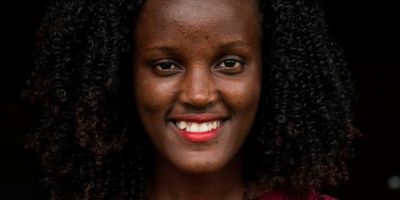Watch Ugandan Climate Change Activist Vanessa Nakate's Interview with 'Doha Debates'
Ugandan climate change activist, Vanessa Nakate, speaks about fighting climate change as an African, environmental racism and more in an interview with Doha Debates.
Vanessa Nakate is a leading climate change activist from Uganda. In spite of her continued valuable work in climate change as a young African, it was a viral photo faux pas that occurred earlier this year that made major headlines. The Associated Press cropped her out of a photo alongside American climate activist Greta Thunberg and other white activists at the World Economic Forum in Davos, Switzerland. In her latest interview with Doha Debates, Nakate addresses that incident, environmental racism and what climate change activism in Africa looks like compared to the West.
"I was cropped [out of the photo in Davos] because of the history of excluding and erasing Black people from leading ecology movements," Nakate begins. She goes on to say that, "I think the climate movement has been idealized to be led by only white activists. We have seen people of colour leading ecology movements from way back. So this is a history of continuous erasure of Black voices, in the leadership of these movements. That is why I think I was cropped out."
Of course, Nakate's experience of erasure as a Black individual is not unique to her––it's universal. The continued erasure of Black people on international platforms continues with the Grammys, the British Academy of Film and Television Arts (BAFTAs), the Oscars and other world stages being front and centre. Climate activism, particularly by Africans, is no different despite its own unique challenges.
Nakate also speaks to the difference evident in climate change activism in Africa versus the rest of the world. She says the following:
"Environmental activism is different for the people in the Global South. It's more complicated to do strikes in the Global South because of the politics and how risky it is to go out there and do massive strikes. In the Global North, there's a privilege of people having alternatives. In my country, Uganda, you find that most of the schools use firewood for preparation of food. I have been to these schools, I have interacted with the teachers, and they say they know the dangers of cutting down the trees but they do not have any alternatives. They know the dangers of eating meat, but they do not have any alternatives...Some communities are trapped in systems they cannot get out of."
Watch the full interview below:
- In Conversation: The Ugandan Supermodel Fighting Climate ... ›
- Watch Hindou Oumarou Ibrahim's TED Talk on How Indigenous ... ›
- Youth Across Africa Turn Out to Protest Climate Change - OkayAfrica ›
- A 15-Year-Old Nigerian Student Lends Her Voice to the Fight ... ›
- The African Designers Paying Tribute to Virgil Abloh - OkayAfrica ›

